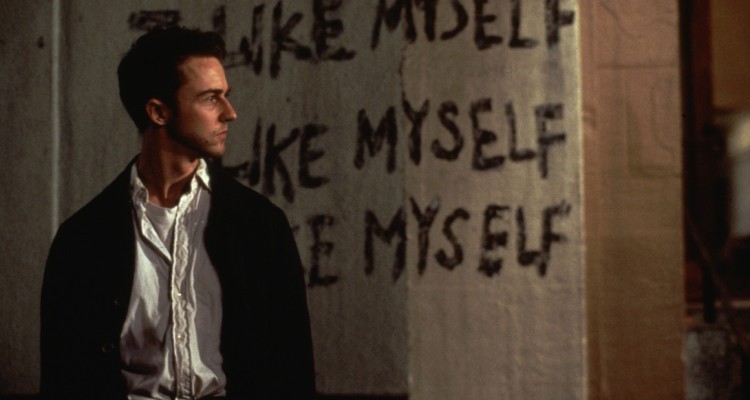Should We Abandon The Phrase ‘Cult Classic’?

Based in the UK and currently embarking on postgraduate research…
Cinema is one of the few areas of modern life where the word ‘cult’ can conjure up positive connotations: more Rocky Horror and Fight Club than Charles Manson. Screenings of ‘cult’ films gather huge, enthusiastic crowds and each have their own strange rituals and practices, such as the hilarious habit of spoon-throwing during showings of The Room. They are among the most popular and respected films in the public conscience and are often loved by crowd and critic alike. There is though a pressing question that rarely gets answered: what actually makes a film into a cult classic? When you uncover the varied and complicated answer, it begs the second question of whether there really is, or ever was, such a thing as a cult classic movie.
In the cult, everything goes…
According to the widest-believed definition, a cult classic is a piece of work that is “obscure or unpopular with mainstream audiences, and often revolutionary or ironically enjoyed”. Allegedly, it first became a prominent description during the 1960’s and 1970’s for midnight and underground movies, specifically used by the people who wanted to defend these non-mainstream releases. From there, it has become a vast umbrella term under which almost every conceivable type or genre of film can be found. The source of the breadth of what can be ‘cult’ lies in the looseness of the above definition – so many films can fit with at least part of this accepted meaning.

For starters, there are the films that best fit this overall definition; the titles that immediately jump to mind when you hear the words ‘cult classic’. Works like The Rocky Horror Picture Show, The Room, Fight Club and The Big Lebowski are all films that received little to no mainstream reception on their release before blossoming into firm favourites on home release that spawn fancy-dress screenings, quote-alongs and passionate defences of their merits. From their humble beginnings, they have matured and grown into being quintessential cult classics. Even within this most straightforward part of the cult equation however, there are complications. While there is little doubt that these are prime examples of cult movies and they all broadly fit the accepted parameters, there are fundamental differences in the way they are received.
Particularly with something like The Room, its cult status comes from just how bad everyone (including/especially its fans) thinks it is. The appeal of films like this is to laugh along with the mistakes, throw objects at the appropriate line and enjoy it not so much as good cinema, but as a piece of pantomime spectacle. Contrast this to the cult reception of something like Fight Club or even Reservoir Dogs. While not devoid of the wilder screening spectacles surrounding works like The Room, a greater reason for its cult identity comes from historical retrospect: a reassessment or re-imagining of a film either in the wake of the director/star’s later success or a change in cultural focus. Reams of material was written in the years after Fight Club reassessing its political intelligence and angry satirical bite, while the success of Pulp Fiction resulted in many discovering or rediscovering Tarantino’s grittier, tauter debut. The cult nature of these films lies not in ironic enjoyment, but in intellectual analysis and retrospective appreciation of someone’s earlier work.

If you throw the net out even further, the defining features of a cult film become even more bizarre. Compiled lists of the top or greatest cult films of all time feature films that barely, if at all, fit the core values of an underground classic. Take for example the inclusion of films like The Deer Hunter (a critically-acclaimed box-office success that won five Oscars, including Best Picture); Mamma Mia (the well-received box-office smash that became highest-grossing musical of all time) and Attack of the Clones (the poorly-received prequel that still raked in over $600 million). It is true that winning trophies and earning lots of money does not mean that a film was universally or even largely liked. However, there is little doubt that films like these are vastly different in both content and their intended appeal from classically cult films like still fit under the same umbrella term. Is this because cultism is a broad church, or because the term is so flawed that it lacks any real worth?
A Useless Phrase?
An answer (of sorts) can be found when reading the comments sections of the aforementioned ‘best-of’ lists. Normally, comment sections bring out the worst in humanity, but in this instance they provide a real insight into how one can define the features and indeed the existence of a cult classic. Among the scores of responses are repeated personal suggestions: “why wasn’t x on the list?”; “y is SURELY the best cult film ever?!”; “I cannot believe you think z classes as a cult movie!”.
Here lies the rub – cult classics are made not by their content, but by the people who watch and enjoy them. Any movie can become a cult classic because any one or group of people can like any particular movie or any particular reason. Much as critics are dumbfounded when people watch and love Transformers, ‘ordinary’ people are dumbfounded by what people say makes or is a cult movie because they themselves don’t get that particular appeal. Far from being a broad church, cultism is a fractured collection of denominations that each proclaims its truth, its movie, to be a great cult classic. “Why? Because we think so…that’s why!”
In short, the makings of a cult classic come not from the content of the film itself, but from the response it generates from its fans. From horribly-scripted dramas to under-appreciated genius and even popular Hollywood blockbusters, anything can be made ‘cult’ because it is the audience that makes them so. In truth, the term ‘cult classic’ should be dropped from the critical vernacular as it is such a loose and poor way to describe or label an individual movie. Much like throwing around utensils and screaming quotes aloud, the word ‘cult’ should be kept for the fans who know how and when to best use it… it is their movie after all.
Do you agree? What are your ideas of ‘cult’ movies?
Comment below – we’d love to hear your suggestions!
Does content like this matter to you?
Become a Member and support film journalism. Unlock access to all of Film Inquiry`s great articles. Join a community of like-minded readers who are passionate about cinema - get access to our private members Network, give back to independent filmmakers, and more.
Based in the UK and currently embarking on postgraduate research in Sheffield, Christopher has been writing prolifically about film for as long as it has taken him to alienate many old friends. Having previously written an award-winning column for a student newspaper, he is delighted to be a part of the excellent Film Inquiry team. He may love and analyse Inception a little too much, but he does have a broad appreciation of most things cinematic.













